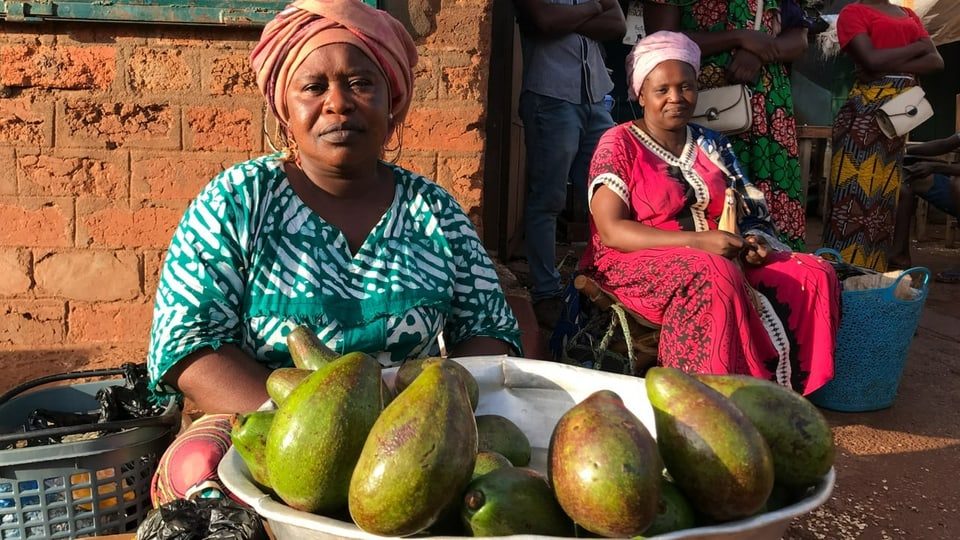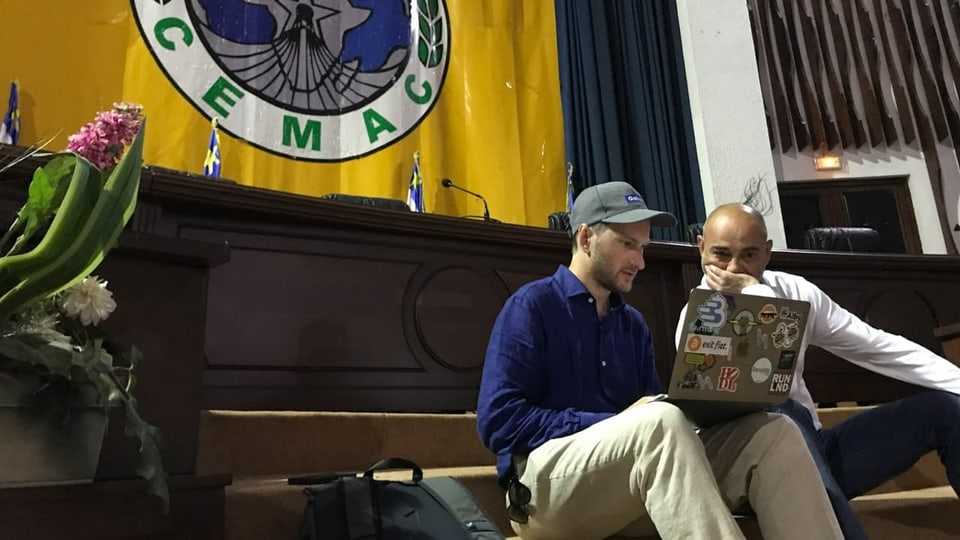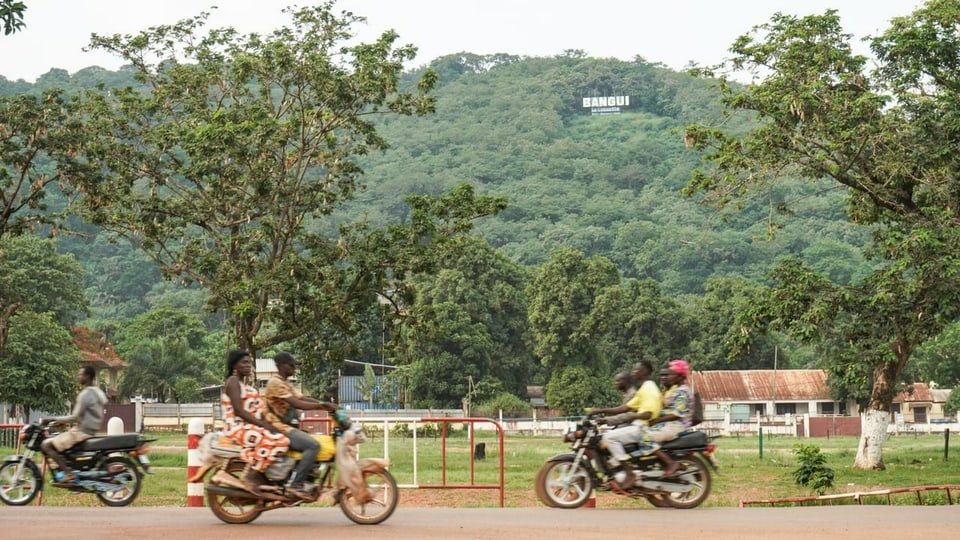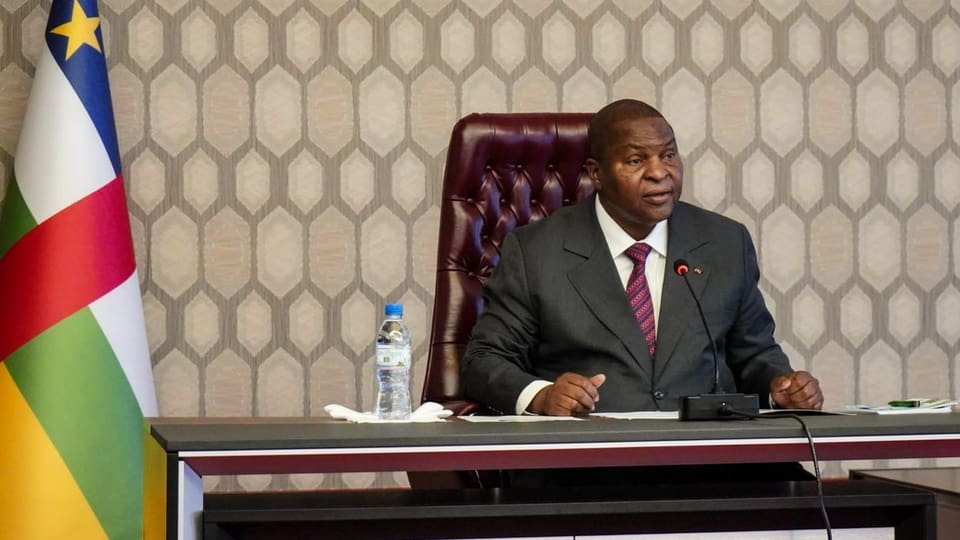Contents
The Central African Republic wants to become Africa’s crypto Eldorado. The state made Bitcoin its national currency in 2022 and it is still causing a stir today. But investors are skeptical.
«The President’s idea will change the lives of people here and worldwide!» Minister Pascal Bida Koyagbele is convinced of the success of the Bitcoin experiment.
The Central African Republic – one of the poorest countries in the world – wants to attract millions in investments with cryptocurrencies. But that’s easier said than done.
The President didn’t just do this for our country or for Africa, but for the whole world!
On the sidelines of a meeting with Bitcoiners from all over the world in June 2022, the Minister praised his President Faustin-Archange Touadéra. The President of the Central African Republic is a visionary.
In April 2022, the Central African Republic introduced Bitcoin as its official national currency. A few months later, the country created its own digital currency – the Sango coin. This is intended to set up a crypto hub in one of the poorest countries in the world.
Legend:
Software developer Nicolas Burtey presents his idea of payment transactions via Bitcoin in Central Africa.
Samuel Burri/SRF
Anyone who purchases virtual Sango coins receives a property in the country or even citizenship and does not have to pay any taxes. An island in the Ubangi River is set to become the center of the country’s economic boom – at least if the computer-generated images are to be believed. In addition, the Sango island should also exist in the metaverse, in virtual space.
The Sango project is gigantic. The state wants to take almost a billion francs with it. This money, in turn, benefits the population, explains Minister Koyagbele: “Through blockchain, through cryptocurrency, we can generate resources. And in this way supply the population with internet, electricity and drinking water.»
Bitcoins without infrastructure?
Progress is urgently needed in Central Africa. Juliette Ndakala sells avocados in Bangui’s central market. She earns around ten francs a day. She takes care of her children. Unfortunately, business is not going well: “We live in an insecure country, people have little money.”

Legend:
Avocado seller Juliette Ndakala in Bangui is skeptical about the country’s Bitcoin plans.
Samuel Burri/SRF
Would Bitcoin be the solution? Ndakala shakes his head: «I don’t know Bitcoin. I don’t even have mobile money on my phone.” In addition, even in the capital, the mobile network is extremely weak. But without the internet, no bitcoins.
Investments in the billions are missing
Frenchman Sebastian Gouspillou is convinced that infrastructure expansion will follow. The entrepreneur is one of the crypto experts at the Bangui conference. For him, Bitcoin is nothing less than a revolution.
Bitcoin can turn the old order upside down. The poor must escape from poverty.
According to Gouspillou, 40 percent of humanity is still excluded from the financial system. Bitcoin could change that.

Legend:
Sebastien Gouspillou (right) on the sidelines of a Bitcoin event in Bangui, Central Africa.
Samuel Burri/SRF
But there’s a catch: Hardly anyone has invested in Central Africa’s crypto plans in recent months. Instead of a billion, only a little more than a million has been put into the Sango coins so far. The planned trading on a crypto exchange is still not possible. The project falters.
In addition, Central Africa’s constitutional court declared the sale of citizenship illegal in September 2022. The legal uncertainty deters investors.
Monetary union blocks cryptocurrency
Probably the biggest challenge: The Central African Republic is in a currency union with neighboring countries. The countries share the Franc CFA. Bangui would need the green light from the central bank BEAC of the economic community CEMAC for the introduction of a cryptocurrency as an official means of payment.
That is very unlikely, explains Iwa Salami, co-director at the Center for Fintech at the University of East London: “It will be interesting to see how Central Africa deals with it.” In the worst case, there is a threat of exclusion from the monetary union.

Legend:
Street scene in Bangui. The supply of electricity and internet is worse than in almost any other African capital.
Samuel Burri/SRF
According to Professor Salami, cryptocurrencies in Africa also have their advantages. This means, for example, that people without a bank account could send and save money in the future thanks to bitcoins.
Bitcoins and other cryptocurrencies have potential for financial inclusion.
On the African continent, it is hoped that many people could be connected to the financial network using cryptocurrencies.
But the optimistic crypto plans have been overtaken by reality in recent months. Bitcoin and other cryptos have lost massively in value over the last year.
As long as Bitcoin is so volatile, it can hardly be used in everyday life, explains fintech expert Salami. Under all these circumstances, she is not surprised that the Central African Republic’s Bitcoin plans are stalling.

Legend:
Faustin-Archange Touadéra, President of the Central African Republic and a graduate mathematician, is the father of the Bitcoin idea.
Samuel Burri/SRF
In January 2023, the President of Central Africa gave an update on the state of affairs for the first time in months. A group of experts from various ministries will draft a more comprehensive law on the use of cryptocurrencies – in order not to let the “unique opportunity for economic and technological development” pass.
But everyday life in Central Africa has not changed in recent months. Although the bitterly poor country urgently needs an economic stimulus. The crypto dreams threaten to fail in reality.
